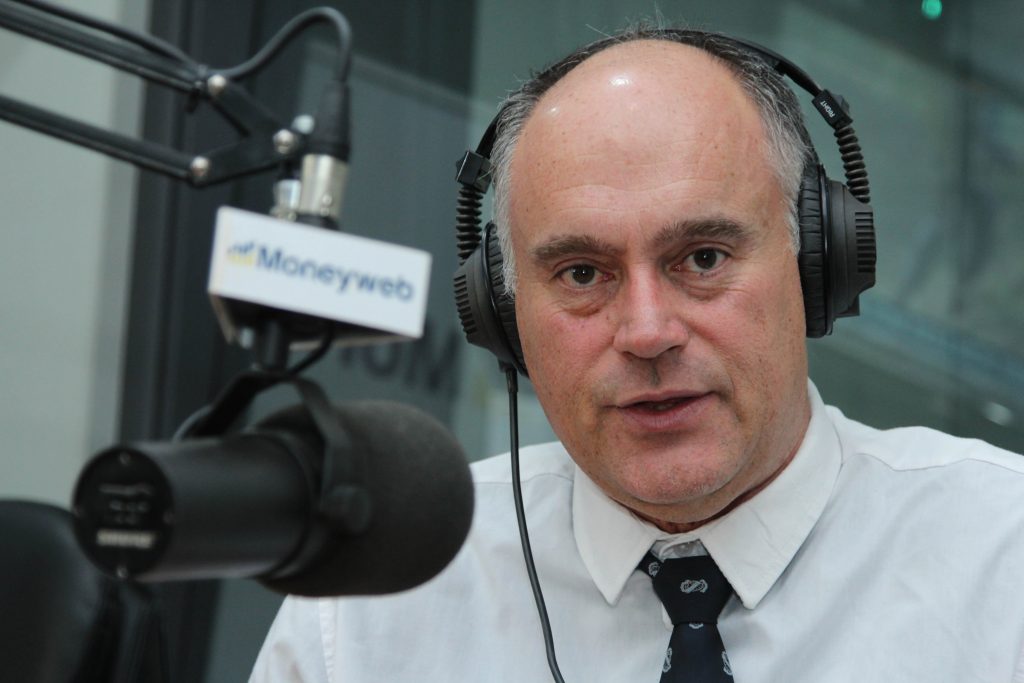Business organisation Sakeliga is the latest group to file a court challenge against the government over the National Health Insurance (NHI) Act, which it says is irrational and unconstitutional.
Sakeliga sets the cost of the NHI conservatively at R1 trillion, which would be economically and fiscally paralysing. Costs, it says, are likely to spiral upwards from an avalanche of frivolous demands for free healthcare, fraudulent claims, and corruption.
Read: Healthcare funders head to ConCourt to review passing of NHI Bill in parliament
The NHI is economically unthinkable, “unless one wants to tempt the same calamitous hyperinflationary fate as the crippling of Zimbabwean agriculture along with that state’s unfulfillable fiscal promises in the late 90s.”
Filling the NHI funding gap of R483 billion would require a 30% increase in income taxes and would be impossible to implement, particularly in light of the failed attempt to increase value-added tax (Vat) by two percentage points in the latest national budget, says the business organisation. Nor is it certain that simply raising taxes will increase revenues.
It argues that implementation of the NHI would result in a 4% annual contraction in GDP, which – unlike the Covid-19 lockdowns in 2020 – would be permanent.
Legal challenges
There are currently 17 different legal challenges against the NHI, including nine in the high courts and eight in the Constitutional Court (ConCourt). The state is attempting to consolidate all the high court cases into one and put them on hold until the ConCourt has ruled on the cases before it – mostly around the question of whether the president acted rationality in signing the NHI Bill into law, particularly when the country can ill-afford it and public participation was largely ignored.
The NHI Act – which seeks to achieve universal health coverage for all South Africans by creating a single public health fund – is not within the state’s available resources and infringes other socio-economic rights, such as the right to housing, water, and education, says Sakeliga.
It adds that the NHI Act is a disastrous proposal and must be opposed until it is either undone or rendered practically impotent.
It must be opposed through comprehensive litigation and maximum appropriate non-compliance, without allowing the government to set an outrageous negotiating baseline for the future of healthcare in SA, argues Sakeliga.
The ministers of health and finance, along with President Cyril Ramaphosa, are among those cited as respondents in the case.
ADVERTISEMENT
CONTINUE READING BELOW
The latest court challenge follows a ruling in the Pretoria High Court in May, obligating Ramaphosa to provide a full record of the proceedings that led to his decision to sign the NHI Bill into law. That case was brought by the Board of Healthcare Funders (BHF).
“[The ruling] reaffirms the constitutional principle that all public power is subject to the rule of law, and that no office-bearer, including the president, is above judicial scrutiny,” says the BHF.
Listen/read:
Legal challenge launched against SA’s R941bn NHI Act
Why the NHI Bill needs rethinking before implementation
The BHF is also challenging the constitutionality of the process that led to the NHI Act becoming law, in particular, the lack of meaningful public participation.
In his founding affidavit, Sakeliga chief economist Russell Lamberti says that rather than focusing on improving the quality of government healthcare and ensuring efficient spending practices, the Department of Health has embarked on creating a money bill and that the effect of the NHI Act is retrogressive. The department is ill-equipped to advance what amounts to a piece of fiscal and social security legislation such as the NHI Act, he adds.
Private vs public healthcare spending
Economic research commissioned by PriceMetrics shows private healthcare spending currently accounts for about 8% of GDP, with 9.1 million people served by private healthcare and 53.2 million relying on public healthcare.
State healthcare is provided on a universal basis through a network of hospitals, clinics, and community health services. District health services, largely covering primary healthcare, accounted for 44.7% of the R267 billion state spending on the sector in 2024.
In 2023, private health and medical insurers served about 15% of the population, and accounted for 42% of total expenditure on healthcare in South Africa. Private medical schemes have contractual obligations to almost 10 million beneficiaries, relying on an extensive network of practitioners, medical facilities, product providers, and other role players. There are others who pay out-of-pocket for private healthcare, adding to the size and importance of the private healthcare sector.
Read:
Thousands of healthcare professionals stand firm in rejecting NHI
25 000 health professionals refuse to sign president’s health compact
Statistics SA figures show a decline in the growth of new private medical aid membership between 2010 and 2023, compared with the 2000-2010 period, reflecting the country’s lower economic growth during the latter period.
ADVERTISEMENT:
CONTINUE READING BELOW
“It is evident and logical that stronger economic and employment growth enables more people to afford and benefit from private health insurance,” deposes Lamberti, adding that poor economic performance lies at the heart of SA’s healthcare challenges and “is one of the key reasons why the NHI is not only completely unviable but counterproductive – it will hamper the economy even more.”
Potential consequences for healthcare professionals
One of the anomalies highlighted in the Sakeliga case is the large amount spent on Department of Health employees in the 2024/5 budget – amounting to 64% of the total health budget – versus just 36.1% spent on health professionals in the private sector, which is in line with international norms.
Read: SA moves to cap mounting health-care service charges
The NHI threatens to create another Eskom-like monopoly where “health-shedding” becomes a permanent feature. “The Act’s gaping vagueness means much of the NHI will be made up on the go. What is clear, though, is that it intends such extreme state control that private medical aid schemes and medical insurance policies would largely disappear,” says Sakeliga in a statement.
Medical decisions would no longer be made freely between healthcare suppliers, hospitals, practitioners and patients. They would be determined by system prescriptions, bureaucratic protocols, and state budget limits. Under the NHI, healthcare professionals “would be pressed into being functionaries and patients would be applicants in a state system, stripped of their autonomy.”
Impact on employment
Some practitioners would opt out of the NHI-accredited system and go-it-alone, while others would leave the healthcare field altogether.
One solution being proposed is to force all formal sector employees to join private medical schemes. The argument against this is that these employees have limited income and choose food and other necessities over healthcare.
Only a thriving and productive economy absorbing millions more people into productive employment – together with greater freedom for healthcare businesses to trade, invest, and innovate – can furnish the means required to scale up quality healthcare supply, says Sakeliga.
Listen/read:
NHI is fiscally and institutionally unimplementable
Private sector warning: NHI may be ‘stillborn’ without collaboration
Follow Moneyweb’s in-depth finance and business news on WhatsApp here.

 4 days ago
1
4 days ago
1























 English (US) ·
English (US) ·